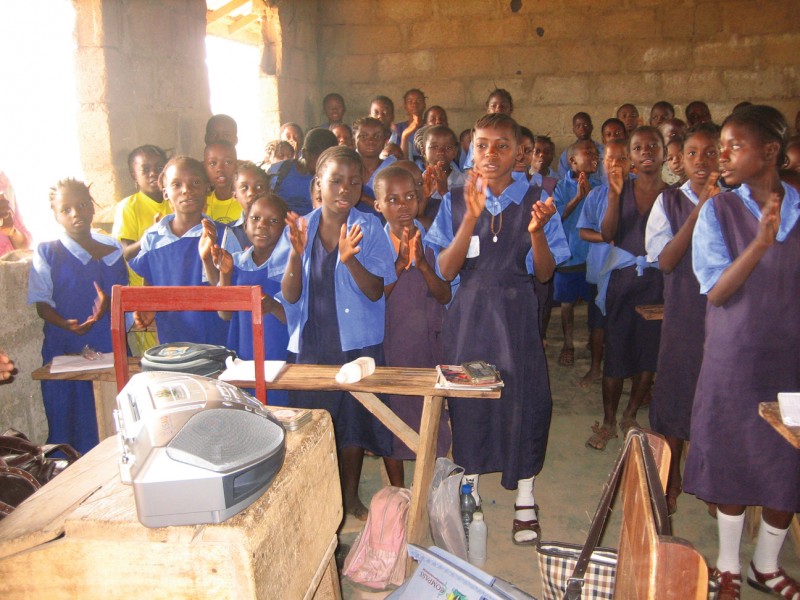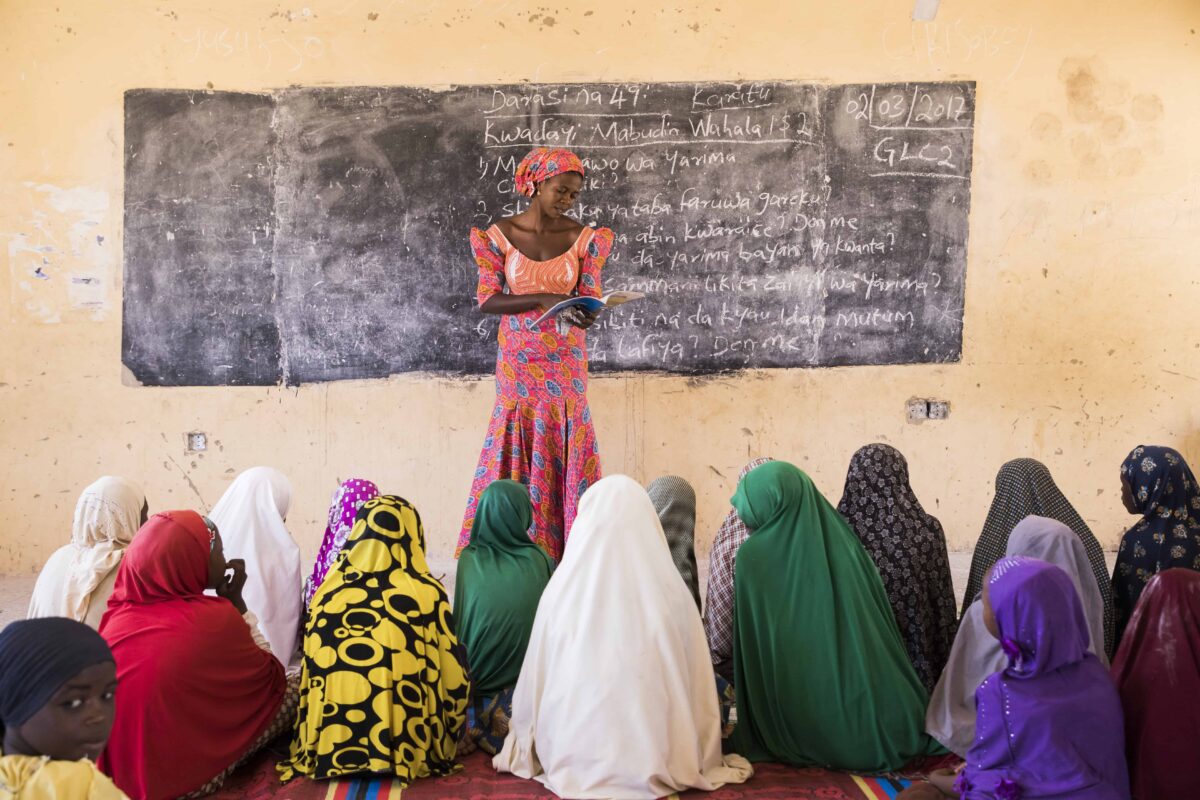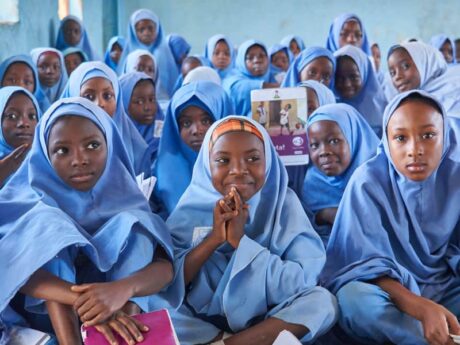
A passerby at a humble rural school in Nigeria’s Kano state would have heard grade three school children singing “we come to make you happy learning, learning, as we go.” The deep resonant voice of their “teacher” would have belonged to “Mr. Learning Tree,” booming from an ordinary radio with a lesson on the present tense in English.
When this U.S. Agency for international Development project ended in May 2009, assessment results proved that exposure to these radio lessons helped children improve their scores in Nigeria’s mathematics and basic literacy curriculum. Working through USAID, the American people helped a remarkable seventy-five percent of the children surveyed in these schools improve their literacy and numeracy skills significantly. For example, fourth grade students in rural schools improved their test results by a statistically significant eight percentage points.
Mr. Learning Tree is the main character in an interactive basic education radio program launched in 2004 by USAID in Nigeria’s states of Kano, Nasawara and Lagos. Mr. Learning Tree is joined by his cohorts Rabbit and Tortoise, delighting children with these familiar Nigerian folklore characters and helping teachers bring mathematics and basic literacy to life. The radio lessons aired three times weekly and reached 700,000 pupils and 21,104 teachers in 1,400 schools.
“The Interactive Radio Instruction programs helped schools improve the skills of untrained teachers especially in Islamiyya schools (which provide religious and secular education) and mitigated the effect of the lack of availability of instructional materials,” said Semere Solomon, Creative’s director of the Basic Education component of the COMPASS USAID-funded project.
Nigeria is the most populous country in Africa. With 44.3 percent of its population under the age of 15, Nigeria illustrates the economic and security imperatives for realizing universal education. Nigeria and other countries are striving to achieve universal education by 2015. Radio instruction provides one proven and tangible solution to address access, equity and quality of education in an interactive and child-friendly way.
The broadcasts for grades 1 and 2 were produced in the Hausa and Yoruba languages while those for children in grades 3 to 6 were in English in line with Nigerian curriculum standards. The interactive radio program complemented and reinforced training teachers in modern instructional methodologies. Practical steps such as building separate toilets encouraged girls to go to school.
Radio broadcasts integrated health messages throughout the series of 90 programs emphasizing good practices including hand washing, sleeping under treated mosquito nets, and getting immunized.
The broadcasts will continue to enrich teachers and children beyond the life span of the project. The project trained 87 interactive radio instruction professionals (script writers, sound engineers, producers, formative evaluators, actors, musicians, and curriculum experts) who now serve as a resource for educational radio projects in Nigeria.

